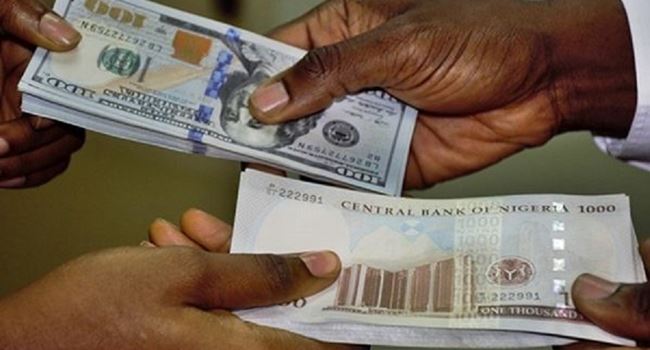The naira saw significant negative price fluctuations in the foreign exchange (FX) market as demand for import payments increased. The FX market was unable to meet the potential buyers’ US dollar demand due to a scarcity in the official window.
The acute FX market shortage pushed the exchange rate closer to the Central Bank of Nigeria’s (CBN) fear index, triggering US dollar sales to banks or Bureau de Change to increase FX liquidity, based on the authority’s previous defensive moves.
The naira declined by 6.13%, closing at ₦1,658.48 per US dollar at the official market, based on FX spot data from the FMDQ.
Nigeria is experiencing an extreme shortage of US dollars in the economy as a result of an overreliance on foreign inputs from corporate entities and other government US currency price-related arrangements. The Naira has reached a level that often prompts CBN action. Some analysts believe the CBN would sell FX to approved dealer banks this week to decrease exchange rate volatility.
Since August 8, the CBN has not held any Dutch FX auctions; they will restart in 2024 as the central bank continues to fight a stealthy assault against the dominant US dollar. Previous FX moves show that the CBN will protect the naira before the exchange rate surpasses N1700, as today’s lethal spiral; signifying that the negative trend in the currency market has deepened.
The naira closed at ₦1,660 to the greenback in the informal currency market. The depreciating local currency witnessed demand pressure from invisible FX users for personal and business travel allowance.
Last week, the Nigerian autonomous foreign exchange market rate traded within the range of N1,500 – N1,672, and closed at N1,541.5 in the spot market. This points towards an appreciation of +0.3% or N4.9 week on week, traders said. In the forward market, a 1-month contract appreciated by +1.7% to close at N1,639.5, and a 3-month contract appreciated by +1.4% to close at N1,713.7.
In the parallel market, the naira closed at an average of N1,669.30 on Friday, Coronation Research said in a note. This left the gap between the NAFEM and the parallel market rate at 9% on the back of market wide decline in the value of the local currency.
According to data from the FMDQ platform, total turnover at Nigeria autonomous FX market declined by 47.6%, or USD615.5 million, to close at USD677.2 million on Friday. >>> Naira Rises against US Dollar Ahead of Sept. FX Auction
Meanwhile, the NAFEM window recorded an inflow of USD616.6 million, with the CBN accounting for 25.5% of the total inflow, FPIs 3.2%, non-bank corporates 27.2%, exporters 29.5%, and others accounted for 14.6%. At the CBN monetary policy committee (MPC) meeting, members pointed out unabating demand pressure in the FX market and the recent efforts to stabilise the naira.
The monetary authority also highlighted the positive impact of the Dangote Refinery, which potentially reduces FX demand for fuel imports and supports the overall balance of payment. The committee also noted the sustained accretion in the FX reserves in the near-recent weeks. External reserves moved near a 2 year high due to sustained FX inflows into the economy from yet-to-be identified sources.
In the global commodities market, oil prices increased due to news of monetary stimulus from top importer China and concerns about potential supply disruptions in the Middle East and the United States.
Brent prices increased by 1.58% to $75.04, and WTI prices rose by 1.44% to $71.38. Additionally, gold reached a record high as Middle East tensions fueled its safe-haven appeal, and investors reacted to fresh cues for more U.S. interest rate cuts.










